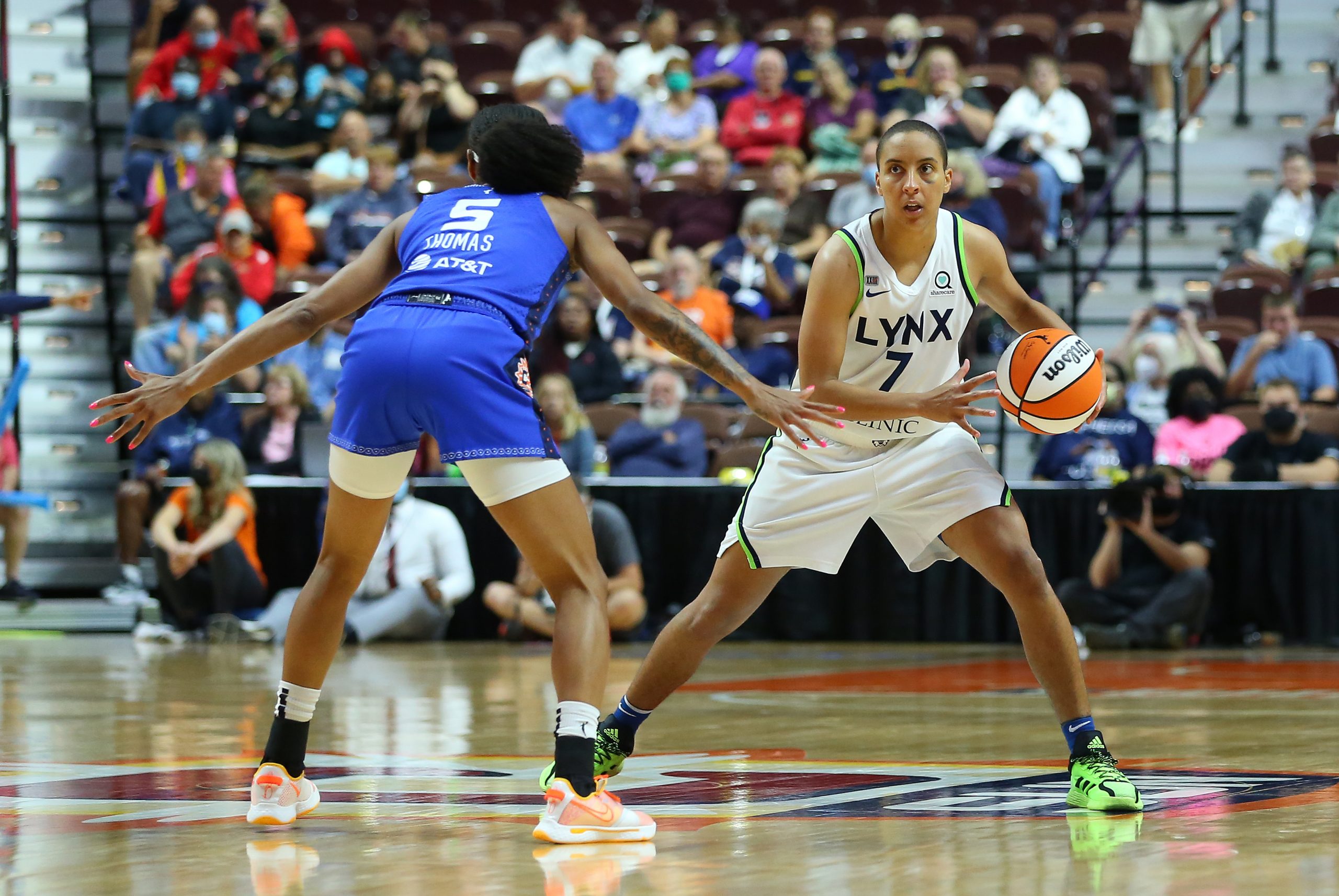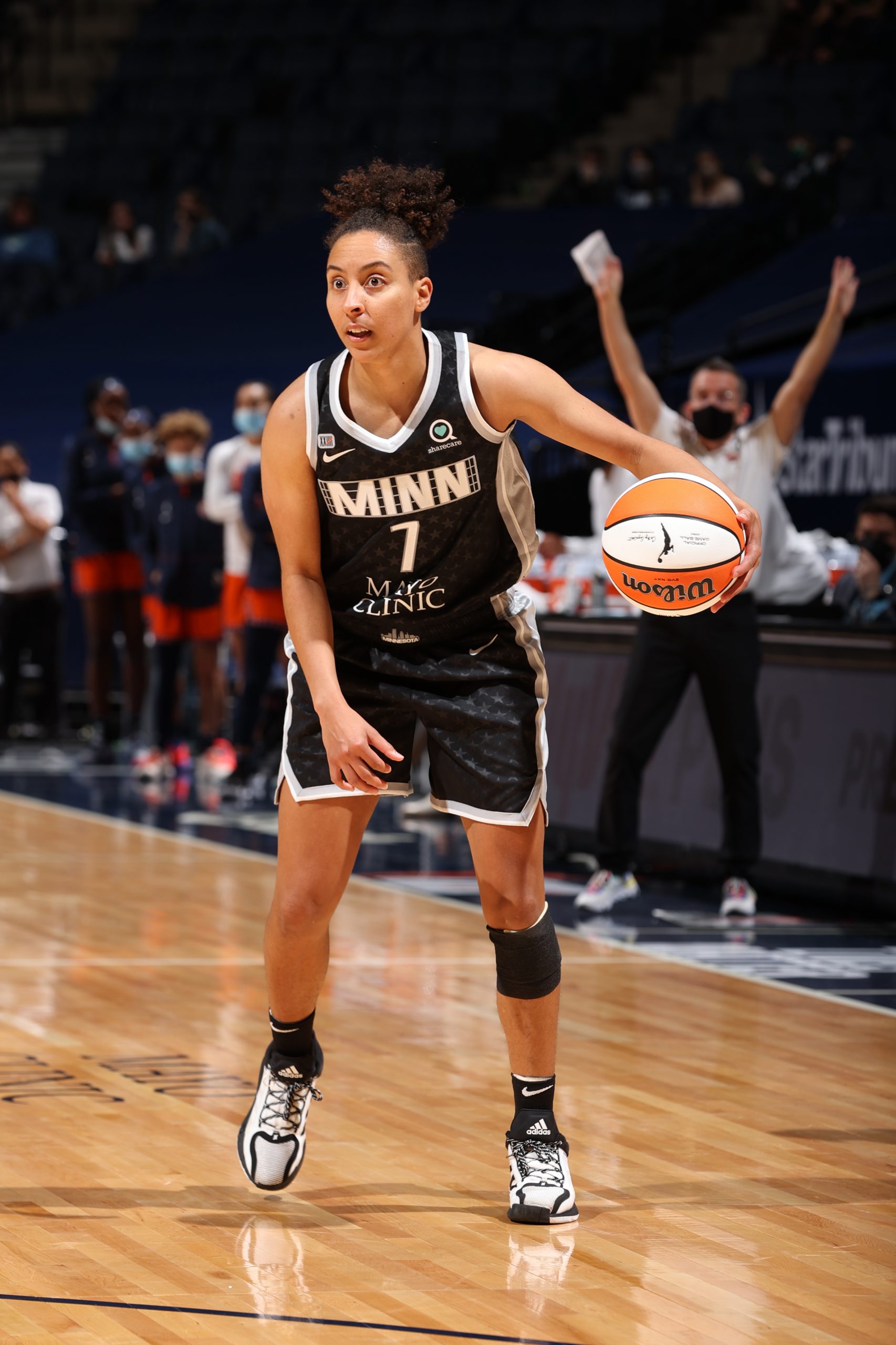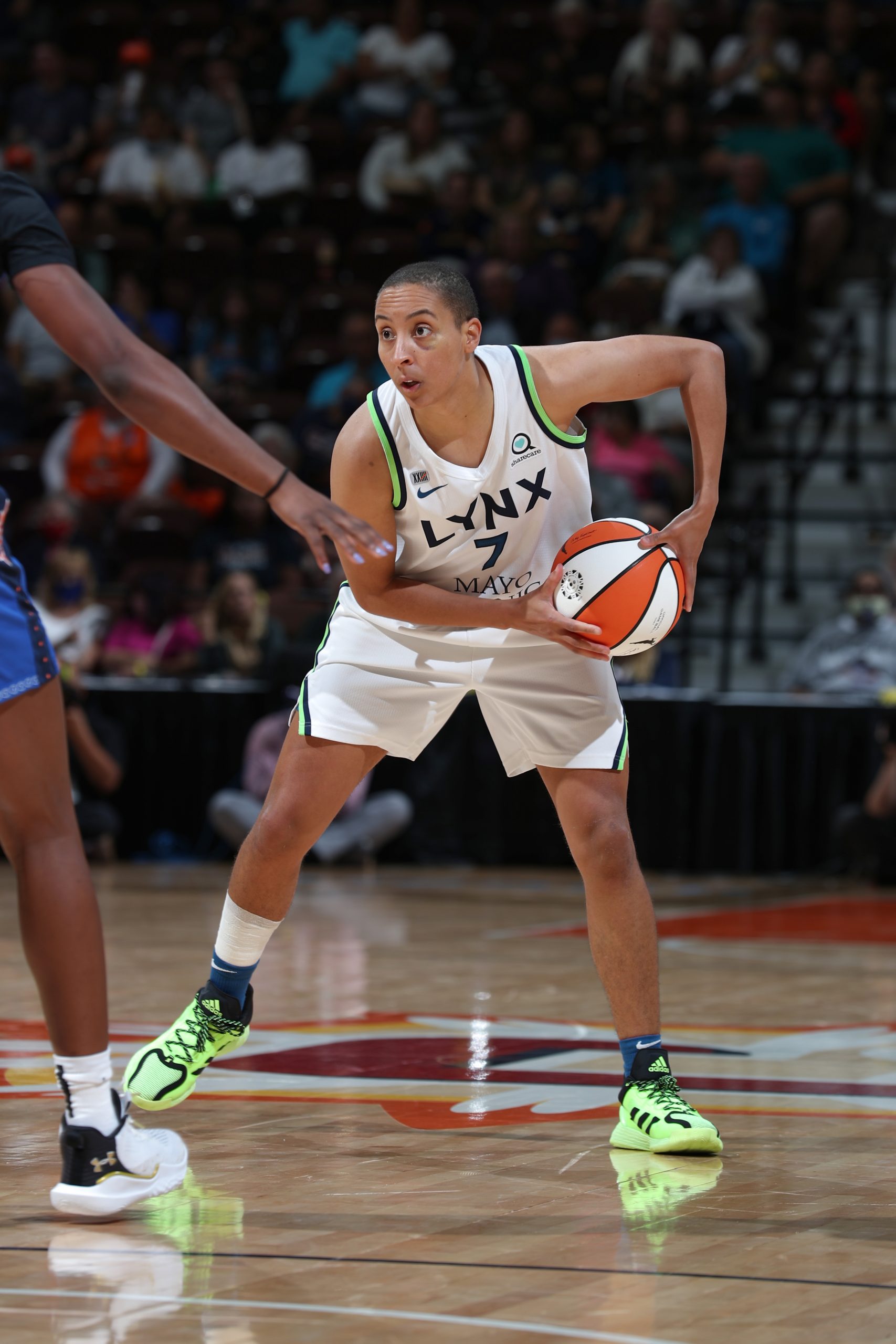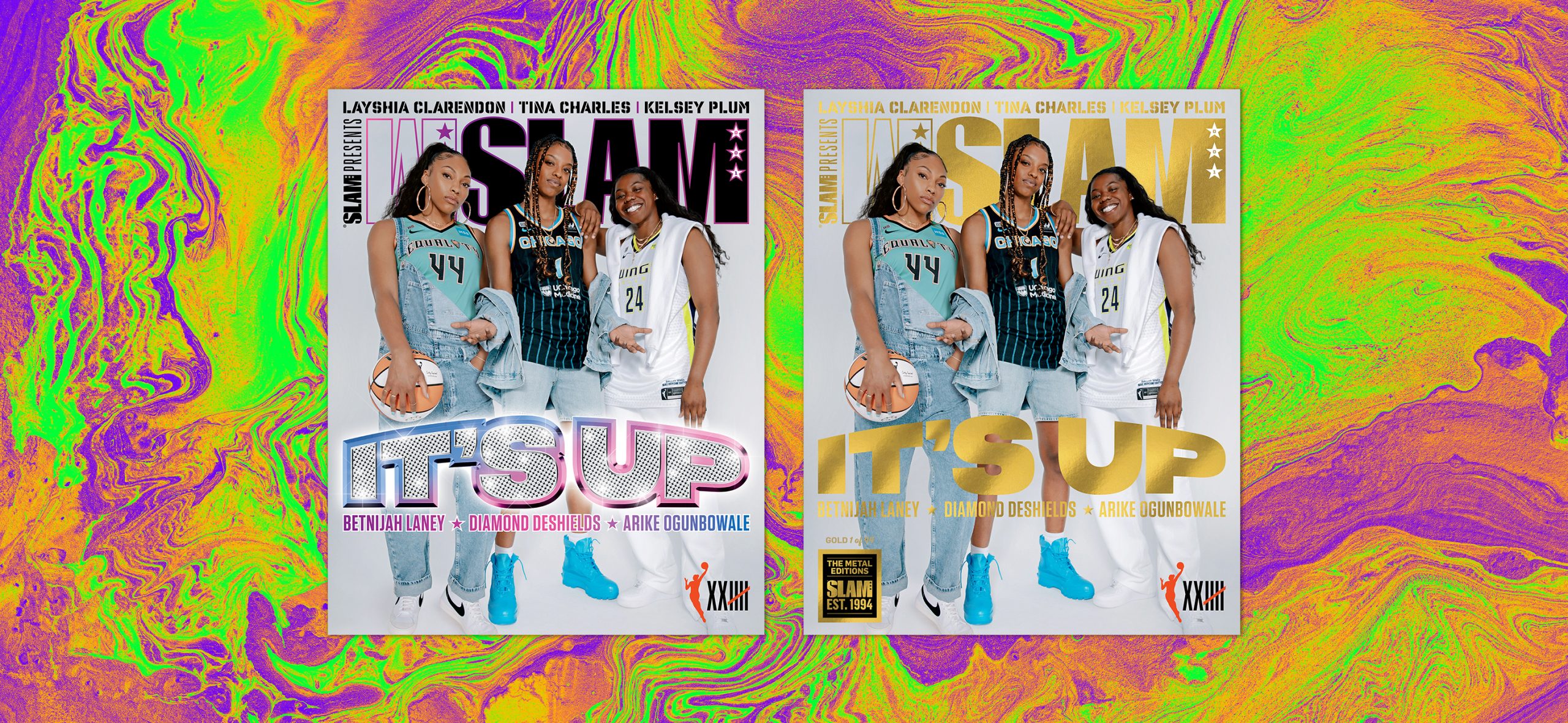This story appears in the first-ever WSLAM Magazine, an entire issue dedicated to women’s basketball.
The New York Liberty sent a shock wave across the WNBA earlier this season when they waived point guard Layshia Clarendon after three games. An integral part to the Liberty’s 2020 season, Clarendon stepped into the starting position after the loss of Sabrina Ionescu and averaged career highs in field goal percentage (46.5) and points (11.5). Many fans thought that they would remain with the team.
No need to worry about Clarendon landing on their feet though. They went from a team looking to win its first championship to the Lynx, a team that is not only tied for the most championships in the League (four) but also has won more Western Conference championships than any other franchise in the conference. They also currently hold the League record with 10 consecutive playoff appearances. Stroke of luck? Maybe. A case of good things happening to good people? Possibly. Or is it just simply another example of the resiliency, faith and motivation of Clarendon, and why it’s so difficult to ever count them out?

One of the most powerful and well-respected voices in the W, Clarendon isn’t your typical player. It’s not only because they are the first non-binary and transgender person in the League (using the she/her, he/him, and they/them pronouns interchangeably), but also because they understand the uniqueness they bring to the game and to the point guard position, stemming back to their days in the NCAA.
“Alexis Gray-Lawson was an amazing player at Cal. People were like Oh you’re the next Alexis Gray-Lawson, and I’m like No, I’m the first Layshia Clarendon,” the guard shares with WSLAM. “I think the way I play in W, I’m one of the most physical point guards. I think I have the savvy of some of the legendary point guards…but, like, the dribble hold, and some of the moves that I do, no one does that in the WNBA and especially not to the extent that I do. No one plays with the physicality at the point guard position that I do. And so that’s one of the things I love about the uniqueness of my game; I don’t try to emulate anyone.”
Arriving in Minnesota after initially signing a hardship contract in late May, Clarendon’s presence was immediately felt. Trying to block out of their mind the difficulties that come along with picking up your family and relocating with a newborn, as she and her wife recently celebrated the birth of their child “Baby C,” the All-Star point guard focused on the new opportunity ahead of them and provided the fire the Lynx needed to charge toward the team’s first win of the season. And that spark wasn’t temporary. Clarendon’s impact continued, and Minnesota won seven straight games heading into the Olympic break. The combination of Clarendon’s high-level contributions plus the return of key players from injury helped make the Lynx the hottest team in the League in mid-July.

Get your copy of WSLAM 1!
Impactfulness has become a pattern for Clarendon. The same effort taken with each dribble and each pass to ensure precision and efficiency during game play is the same effort put forth in every conversation and meeting in which they are standing on the right side of social justice and LGBTQ+ rights. It was Clarendon’s idea to dedicate the 2020 WNBA season to the Say Her Name campaign. It was Clarendon standing front and center when the WNBA and WNBPA launched the Social Justice Council to drive the players’ activism efforts. It was Clarendon standing together with other leading voices of the League—Nneka Ogwumike, Elizabeth Williams, Sue Bird, Natalie Achonwa, Chiney Ogwumike and Satou Sabally— as the executive council of the WNBPA, ensuring the expressions of the diverse group of people who make up the WNBA are represented fairly, adequately and equitably. It was also Clarendon who played a crucial part in helping to negotiate the WNBA’s acclaimed new CBA, a process they credit for aiding their understanding of true leadership, democracy and governance.
“The things that came out of that deal were phenomenal, but the internal process that we all went through as leaders, it stretched us in ways that helped prepare us for Bradenton,” Clarendon says.
“Leadership is a lot of listening. And that’s really hard and very humbling when you have so many different people with different wants. You just have to listen and keep the best interest of everyone. You have your opinions, and you have your feelings, but you have to check your ego.”

Clarendon flawlessly handles the pressure: the pressure that comes with playing for one of the most demanding coaches in the game, the pressure that’s attached with inspiring so many young trans and queer people to live their lives in openness, the pressure that comes along with being a new parent, and the pressure that builds from within from wanting to accomplish every goal set.
“I hope anyone who’s ever played with me felt seen. I hope I change the way we view gender forever. That would be amazing if I helped slow up the binary in sports. That I fought for the liberation of all people, the same way I fought for social justice and the world, but also for this League. Especially in the CBA. I hope we look back and look at that as a stepping stone for the one that’s really going to blow it out of the water.”
When it’s all said and done, Clarendon wants to leave the League in a better place than they found it, so the legacy of impactful and intentional progression can continue for another 25 years and beyond. Inspiring and influential, the WNBA is a better place because players like Clarendon have graced its courts.
WSLAM 1 featuring Arike Ogunbowale, Diamond DeShields and Betnijah Laney is out now!

Photos via Getty Images.